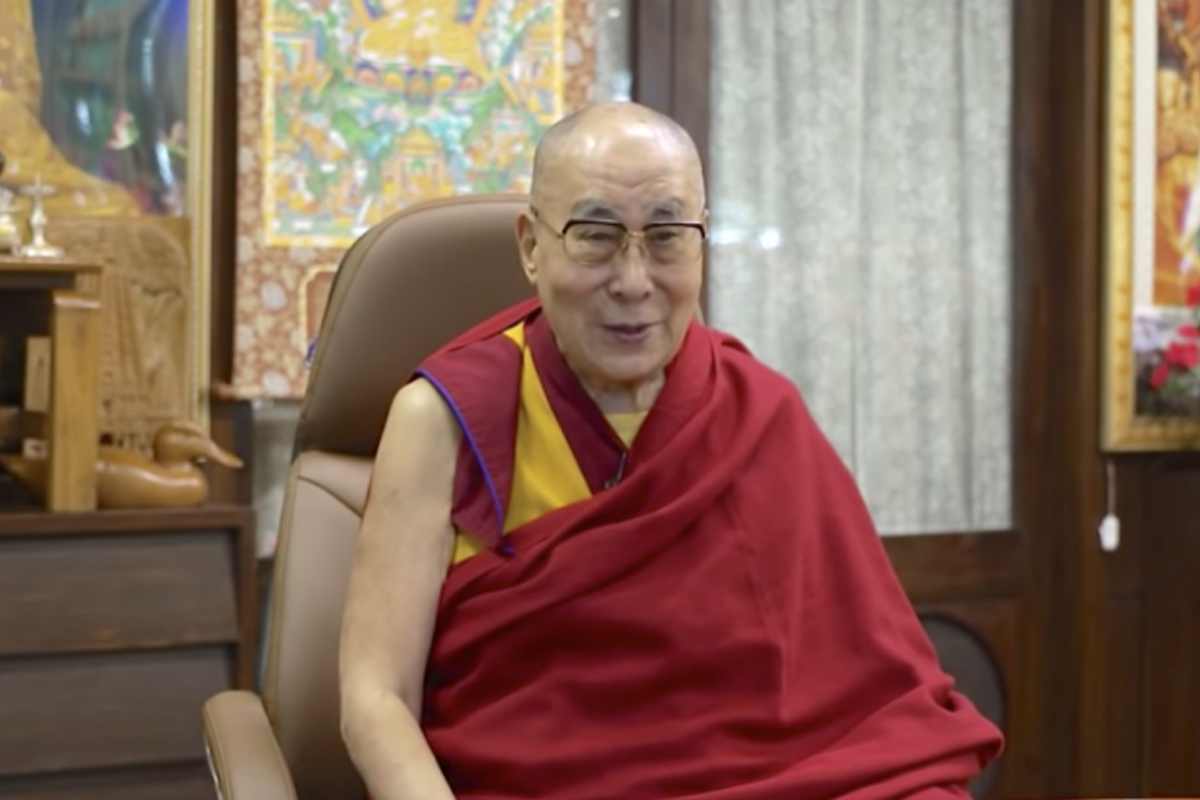Tibetan spiritual leader Dalai Lama said China is traditionally a Buddhist country with over 400 million Chinese Buddhists and this common culture between China and India could be the basis for their working together to achieve peace in the world.
He was interacting with students from the Law Faculty of Delhi University, Banaras Hindu University, Varanasi, Guru Govind Singh Indraprastha University, Delhi, National Institute of Technology, Yupia, Arunachal Pradesh and Chapra Central School, Saran, Bihar.
Dalai Lama said China and India are the world’s most populous nations but whereas China has faced all kinds of ups and downs, India has steadily preserved its democracy and rule of law.
It’s a country where different peoples with their own language and culture all belong to one Indian Union, he added.
He said in 20th century, Mahatma Gandhi revived ‘ahimsa’, non-violence, and showed how effective it could be in terms of political struggle. Archbishop Desmond Tutu, Nelson Mandela and Martin Luther King were all deeply moved by his example.
“Here and now in the 21st century, when too many problems revolve around emotions, I am convinced that India can show the world how to deal with them and achieve peace of mind,” he said.
He further stated that if things had objective existence in and of themselves, logical fallacies would ensue. These would include a noble being’s meditative absorption of emptiness being the destroyer of phenomena and the conventional existence of things being able to withstand ultimate analysis of the nature of things.
“If we have only a narrow, short-sighted outlook, our problems can seem to be huge. But if we look at them from a wider perspective, they don’t seem to be so daunting.
Great Indian masters in ancient times suggested that galaxies have a beginning and an end. Whatever has a cause logically must come to a conclusion.
Our sun had a beginning, so eventually it too will come to an end. In such a context, our immediate problems are relatively small,” he said.
Tibetan spiritual leader said there is also mention in ancient texts that the universe may be consumed by fire, water or wind. Present indications of global heating suggest that in our era the end will be by fire.
Scientists say that unless changes are made, global heating will reach a point where lakes and rivers run dry and what is now green land will turn to desert. In such a wider context, disagreements between human beings diminish in significance.
“Meanwhile, the consequences of this pandemic have been very sad, but we must face it as best we can. Research must go on into how to deal with it.
I believe that traditional medical traditions may have something useful to contribute. In the 8th century, the Tibetan Emperor, Trisong Detsen, convened a conference of practitioners of Ayurveda, traditional Chinese medicine, Tibetan medicine and other traditions to share their knowledge.
A similar conference today with allopathic physicians could be fruitful,” he added.










